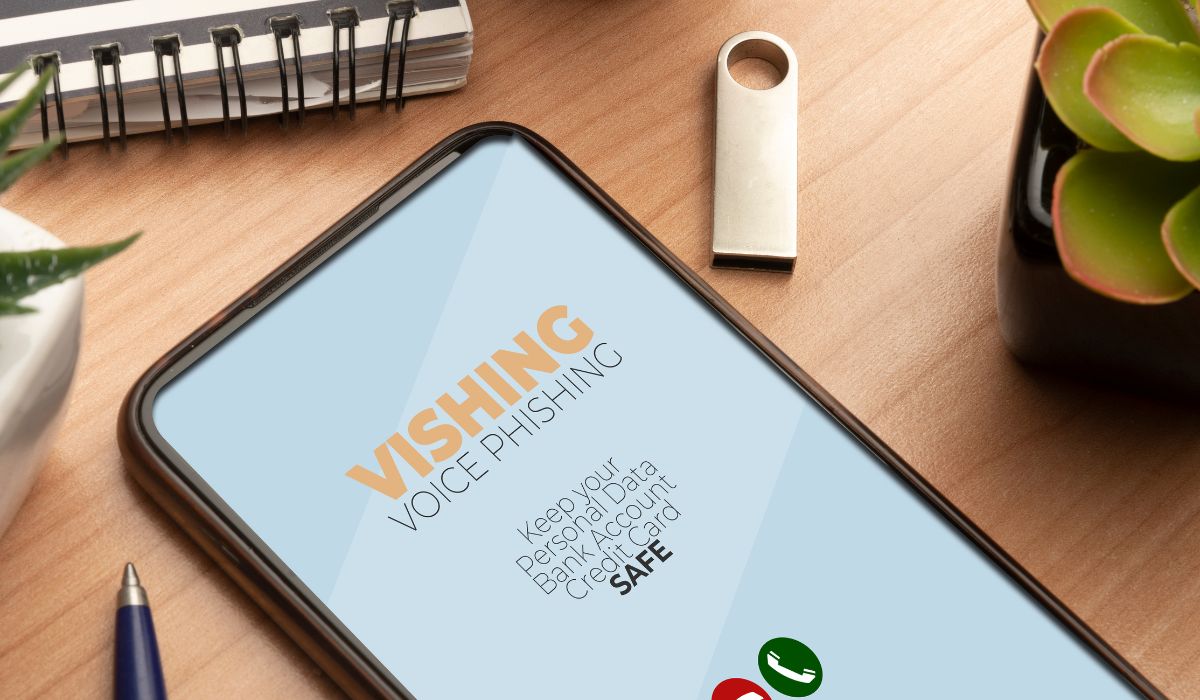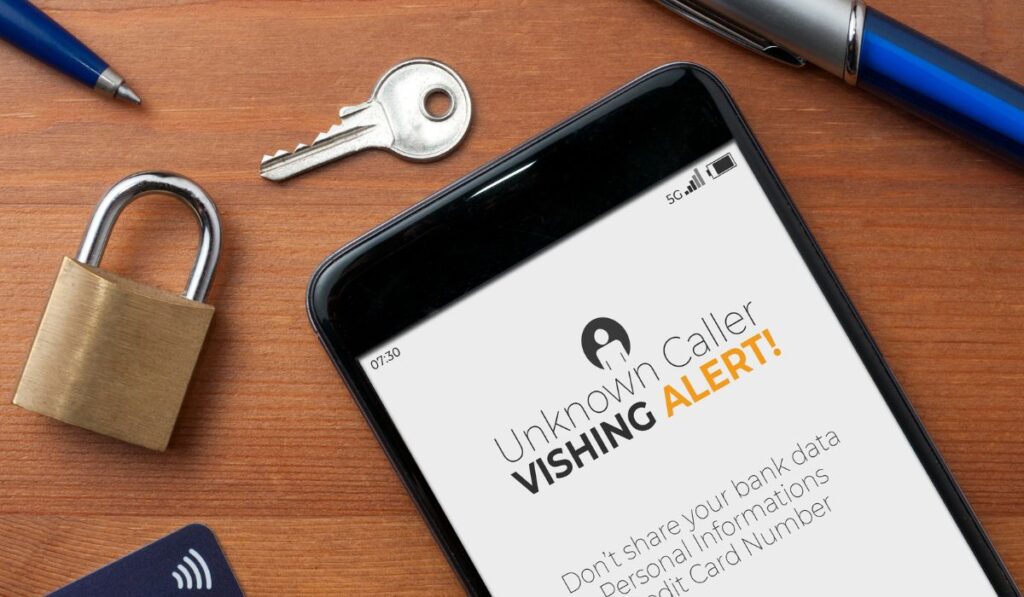Defend Against Vishing Attacks: Prevention Strategies, and Pillar Support’s Training

Vishing, short for voice phishing, has emerged as a significant threat in the realm of cyberattacks. In this article, we will delve into the world of vishing attacks, exploring their nature and impact. We will also provide valuable insights on how to recognize and protect yourself against these voice-based phishing attempts.
Vishing attacks exploit the trust placed in phone conversations to deceive individuals and gain access to sensitive information. Cybercriminals employ various techniques, such as impersonating legitimate organizations or individuals, to trick victims into revealing confidential data or performing unauthorized actions. Understanding vishing attacks and implementing preventive measures is crucial in safeguarding your personal and financial security.
Throughout this article, we will delve into the intricacies of vishing attacks, discussing the tactics employed by cybercriminals and examining real-life examples. We will provide you with the knowledge and tools necessary to identify vishing attempts and protect yourself against them.
Join us as we explore the world of vishing attacks and equip ourselves with the knowledge and strategies to counter this ever-evolving cyber threat.
Table of Contents
What is Vishing?
Vishing, short for voice phishing, is a form of social engineering that exploits voice communication to deceive individuals and extract sensitive information. Unlike traditional phishing attacks conducted through email or text messages, vishing attacks rely on the power of human interaction to manipulate and trick victims.
Attackers use various techniques to create a sense of urgency, authority, or trustworthiness during phone conversations. They may impersonate legitimate organizations, such as banks, government agencies, or service providers, to deceive victims into divulging personal or financial information. By leveraging psychological manipulation and persuasive tactics, vishers aim to gain unauthorized access to sensitive data or conduct fraudulent activities.
One common vishing technique is to initiate a call pretending to be a representative from a reputable organization. The attacker may provide false information, such as claiming suspicious account activity or offering exclusive deals, to establish credibility and encourage the victim to share confidential details. In some cases, vishers may even use caller ID spoofing to display a trusted number, further enhancing their credibility.
Vishing attacks can target both individuals and businesses, and they have been known to cause significant financial losses and reputational damage. It is essential to be aware of these deceptive tactics and take preventive measures to protect yourself and your organization.
By understanding the nature of vishing attacks and familiarizing yourself with the techniques employed by attackers, you can enhance your ability to detect and respond to such threats effectively. Stay vigilant, trust your instincts, and be cautious when sharing sensitive information over the phone to safeguard yourself against vishing attacks.
Common Vishing Scenarios
Vishing attacks come in various forms, and attackers often employ deceptive tactics to manipulate victims over the phone. Here are some common vishing scenarios to be aware of:
Impersonating Trusted Entities
Attackers may impersonate well-known organizations, such as banks, government agencies, or service providers. They will pretend to be representatives from these entities and attempt to gain the victim’s trust by providing fake credentials or referencing specific account details.
Urgent Requests for Personal Information
Vishing callers often create a sense of urgency by claiming there is a problem with the victim’s account, suspicious activity, or an overdue payment. They may request personal information, such as Social Security numbers, account details, or verification codes, under the guise of resolving the issue.
Fake Prize Notifications and Lottery Winnings
Vishing scammers may lure victims with false promises of winning a prize or a lottery. They will inform the victim that they have won a substantial sum of money or a valuable prize, but to claim it, they need to provide personal information or make a payment.
Threats and Consequences
Some vishing attackers use intimidation and threats to manipulate victims. They may claim that the victim’s bank account will be frozen, legal action will be taken, or personal information will be exposed unless immediate action is taken. These threats aim to create fear and prompt compliance.
It’s important to remember that legitimate organizations typically do not request personal or sensitive information over the phone. If you receive a suspicious call or encounter any of these scenarios, be cautious and refrain from sharing any confidential information. Instead, independently verify the caller’s identity by contacting the organization directly through official channels to confirm the legitimacy of the call.
Signs of a Vishing Attempt
Recognizing the signs of a vishing attempt can help you protect yourself from falling victim to these deceptive tactics. Here are some signs to watch out for:
- Unsolicited Calls: Vishing attempts often come in the form of unexpected calls from unknown or suspicious numbers. If you receive a call from an unfamiliar number, particularly if it is out of the blue and unrelated to any recent interactions, exercise caution.
- Requests for Sensitive Information: Vishing callers will typically try to obtain sensitive information or financial details from you. Be wary if the caller asks for personal information such as Social Security numbers, bank account details, credit card numbers, or passwords. Legitimate organizations usually do not request such information over the phone.
- High-Pressure Tactics and Threats: Vishing scammers may use high-pressure tactics to create a sense of urgency or fear. They might employ aggressive language, threats of consequences or legal actions, or impose tight deadlines to push you into making hasty decisions. Remember that legitimate organizations generally do not resort to such tactics.
- Inconsistencies in Caller Information: Pay attention to inconsistencies in the caller’s information. This includes mismatched or spoofed caller ID information, background noise that doesn’t align with the claimed location or organization, or a caller who is unable to provide satisfactory answers to your questions.
If you encounter any of these signs during a phone call, it’s crucial to be cautious and skeptical. Do not disclose any personal or financial information unless you can independently verify the caller’s identity and the legitimacy of their request. Trust your instincts and err on the side of caution when it comes to sharing sensitive information over the phone.
Protecting Against Vishing Attacks

To protect yourself against vishing attacks, it’s important to adopt proactive measures and remain vigilant. Here are some key practices to help safeguard against vishing:
Be Cautious of Unsolicited Calls
Exercise caution when receiving calls from unknown or unfamiliar numbers. If you’re not expecting a call or if it seems suspicious, it’s best to be skeptical and approach the conversation with caution.
Avoid Sharing Personal or Financial Information
Refrain from sharing sensitive information, such as Social Security numbers, credit card details, or passwords, over the phone unless you can independently verify the authenticity of the caller. Legitimate organizations usually do not request such information over the phone.
Verify Caller Authenticity
If you receive a call that raises suspicion, verify the authenticity of the caller through official channels. Look up the organization’s official phone number independently and contact them directly to confirm if the call was legitimate. Avoid using any contact information provided by the caller.
Register on the “Do Not Call” Registry
Consider registering your phone numbers on the national “Do Not Call” registry to reduce unwanted calls from telemarketers or potential scammers. While this won’t prevent all vishing attempts, it can help reduce the number of unsolicited calls you receive.
Use Unique Key Phrases
To further verify the authenticity of a caller, establish unique key phrases or code words with friends, family members, or colleagues. This can help confirm their identity during phone conversations, especially when discussing sensitive or confidential matters.
Remember: AI tools can be used to “clone” a person’s voice with just 3-seconds of the original voice. Use key phrases with friends and family members, a unique one per person, to verify the authenticity of the person.
By adopting these practices, you can significantly reduce the risk of falling victim to vishing attacks. Remember to stay skeptical, trust your instincts, and prioritize the protection of your personal and financial information.
Best Practices for Vishing Prevention
Preventing vishing attacks requires a combination of education, awareness, and proactive measures. Here are some best practices to help prevent vishing:
Educate Individuals
Raise awareness among individuals about the risks associated with vishing attacks. Educate them about common tactics used by attackers and the importance of staying vigilant during phone conversations.
Implement Call Screening and Blocking
Take advantage of call screening and blocking features available on mobile devices. These features allow you to screen incoming calls and block numbers associated with known or suspected vishing attempts.
Practice Skepticism and Critical Thinking
Develop a healthy sense of skepticism when receiving phone calls, especially from unknown or suspicious numbers. Question the caller’s motives and the legitimacy of their request. Avoid sharing sensitive information without proper verification.
Report Vishing Attempts
If you encounter a vishing attempt, report it to appropriate authorities or organizations. This can help raise awareness and contribute to ongoing efforts in combating vishing attacks.
By following these best practices, you can reduce the risk of falling victim to vishing attacks and protect your personal and financial information. Remember to remain skeptical, verify caller identities independently, and prioritize the security of your communications.
Pillar Support: Strengthening Defenses Against Vishing
Pillar Support is dedicated to strengthening defenses against vishing attacks and ensuring the security of voice communication. With our expertise in vishing prevention and security, we offer customized solutions to help protect individuals and organizations from falling victim to these deceptive tactics.
Our comprehensive approach includes implementing advanced security measures to enhance voice communication security. We provide tailored solutions that address the specific needs and vulnerabilities of our clients, ensuring robust protection against vishing attacks.
One of our key offerings is fraud awareness training, where we educate individuals and organizations about the risks associated with vishing and equip them with the knowledge and tools to detect and prevent such attacks. Our training programs are designed to raise awareness, promote best practices, and foster a culture of security and vigilance.
At Pillar Support, we understand the evolving nature of vishing attacks and the importance of staying one step ahead of cybercriminals. Our team of experts is committed to providing cutting-edge solutions and ongoing support to protect against vishing threats.
With Pillar Support by your side, you can confidently navigate the world of voice communication, knowing that you have a trusted partner dedicated to safeguarding your security. Together, we can strengthen defenses against vishing and create a safer digital environment.
To learn more about our vishing prevention services and how we can assist you in enhancing your voice communication security, visit our website or contact us today.
Frequently Asked Questions
What is the Vishing Attack?
Vishing, short for “voice phishing,” is a type of social engineering attack that involves manipulating and deceiving individuals through voice communication. Attackers use phone calls or VoIP (Voice over Internet Protocol) to impersonate trusted entities and trick victims into sharing sensitive information or performing actions that benefit the attacker.
What is the Difference Between Phishing and Vishing?
Phishing and vishing are both forms of social engineering attacks, but they differ in their communication channels. Phishing typically occurs through email or fraudulent websites, while vishing is carried out through voice communication, such as phone calls or voicemails. Both aim to deceive individuals into revealing sensitive information or performing actions that benefit the attacker.
What is an Example of Vishing?
An example of a vishing attack is a scammer posing as a bank representative and contacting a victim over the phone. The scammer may claim that there has been suspicious activity on the victim’s account and request personal information or banking details to resolve the issue. By impersonating a trusted authority, the attacker aims to trick the victim into divulging sensitive information that can be used for fraudulent purposes.